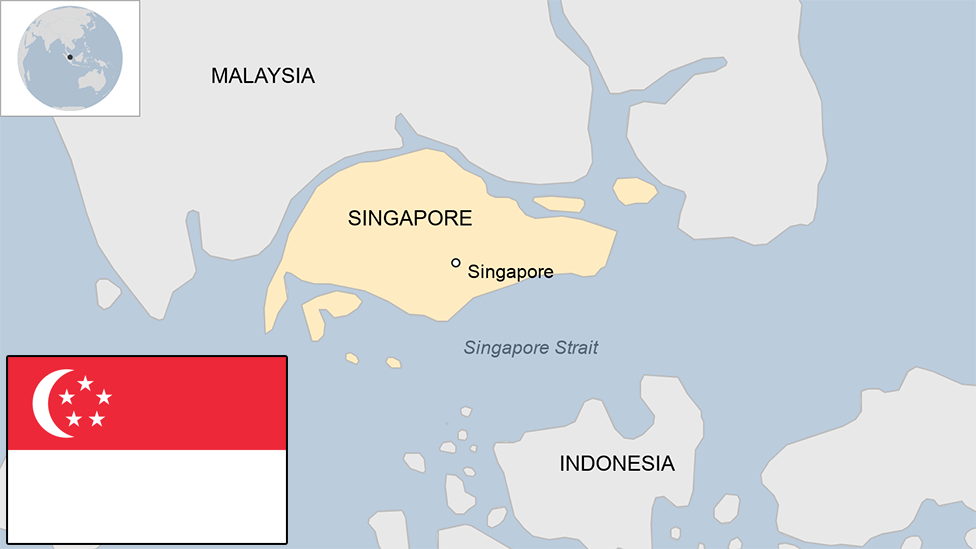Singapore election: Governing party secures decisive win
- Published
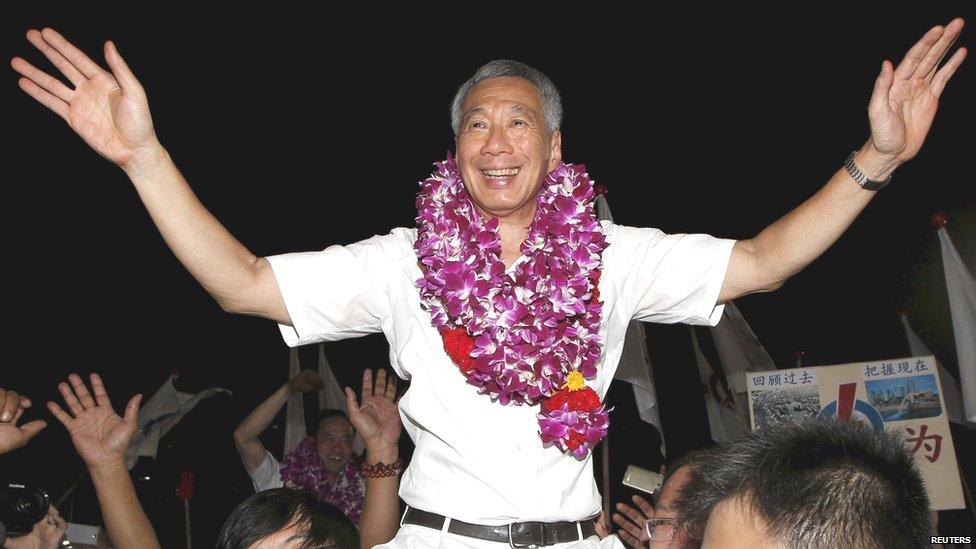
It was a sweet moment for Prime Minister Lee Hsien Loong
Singapore's governing People's Action Party (PAP) has won a decisive victory in the general election.
Results showed the PAP had secured 83 of 89 seats, winning nearly 70% of the ballots cast. The party has won every election since independence in 1965.
Patriotic feeling over the death of long-term leader Lee Kuan Yew may have swelled the vote, analysts said.
The opposition, running in all constituencies for the first time, had hoped to challenge the PAP's dominance.
But the results were a marked improvement over the 2011 vote for the PAP, when it took 80 of the 87 seats but saw its share of votes drop to an all-time low of 60%.
Prime Minister Lee Hsien Loong, the eldest son of PAP founder Lee Kuan Yew, said he was "humbled" by the result.
"Tomorrow will be better than today," he told supporters.
The turnout was 93.56% among 2.46 million voters, the Elections Department said. Voting is mandatory in Singapore, with few exemptions allowed.
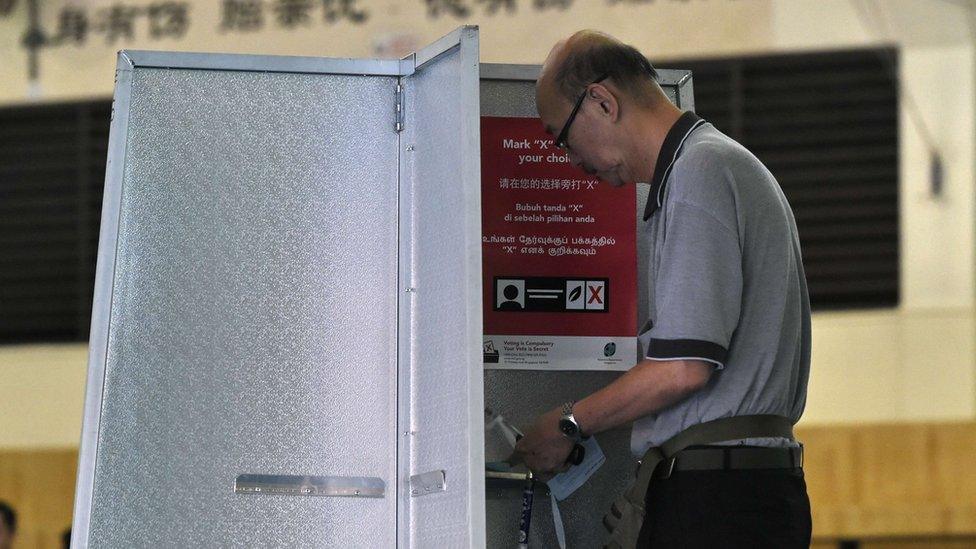
Singapore has more than two million registered voters
The PAP's main rival - the Workers' Party - ended up with six seats, less than the seven it held in the outgoing parliament. A number of smaller parties also ran.
The PAP's success has been attributed to its widespread popularity among Singaporeans - who have seen their country rapidly evolve into a first-world economy - as well as its tight political control.
But government stumbles in managing immigration and infrastructure, coupled with a greater desire by younger Singaporeans for political plurality, have led to gains by opposition parties over the years.
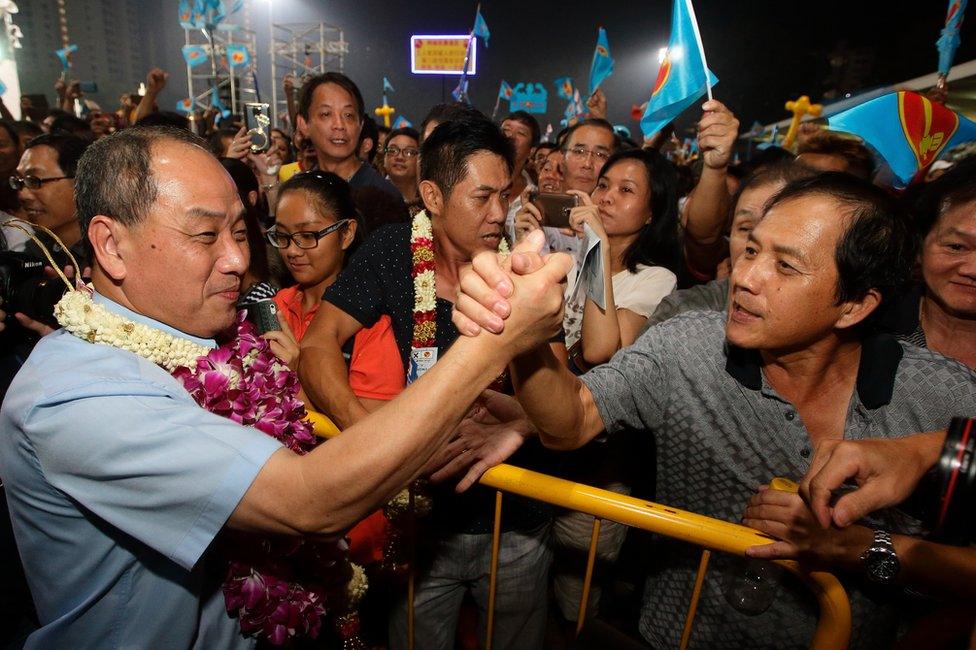
The PAP's biggest challenger was the Workers' Party, led by Low Thia Khiang (left)
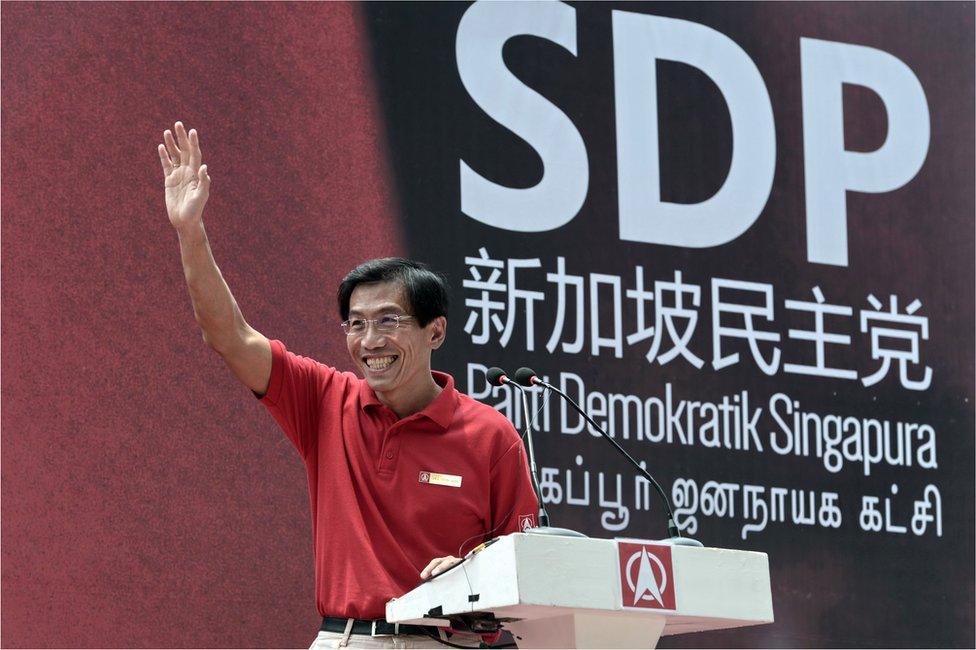
The Singapore Democratic Party's Chee Soon Juan, who was formerly bankrupted by defamation suits launched by Lee Kuan Yew, was hoping to stage a political comeback

Analysis: Tessa Wong, BBC News, Singapore
If the last election was the PAP's nadir, then this one marked its return to glory.
In 2011 it scored 60% of the vote share - a good showing by most counts, but it was the party's worst ever performance - thanks to public unhappiness over an influx of foreigners, a housing shortage, and transport breakdowns.
It sought to resolve these problems, promised to listen to citizens more, and put in place slightly more generous social welfare policies. On Friday, voters rewarded the party with a bigger mandate.
Lingering feel-good vibes from last month's jubilee celebrations, and a renewed sense of gratitude to PAP founder and revered leader Lee Kuan Yew, triggered by his death in March, no doubt also played a part in voters' decisions.
The PAP's return to power was widely expected but its large margin was a surprise to many, not least to the main opposition Workers' Party (WP). It campaigned on a platform of providing an effective check on the PAP, but lost a constituency and saw its winning margins reduced in the few seats it retained.
The results thus cement the PAP's long-running political dominance in Singapore and highlight the long slog ahead for those pushing for political plurality with an electorate which, for now, appears unconvinced of its merits.
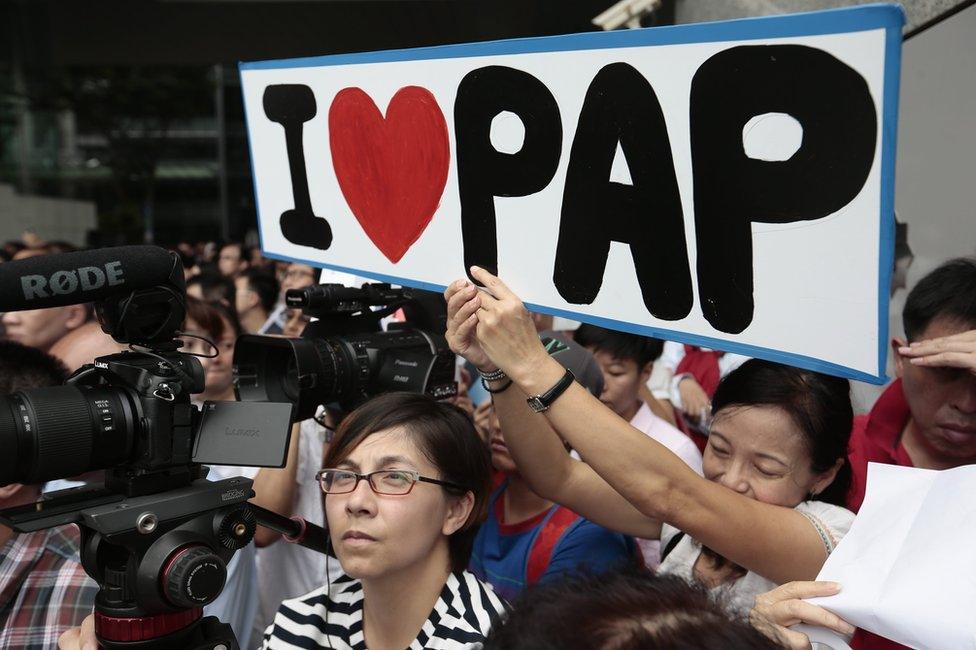
The PAP has enjoyed widespread support in Singapore for many decades
- Published8 September 2015
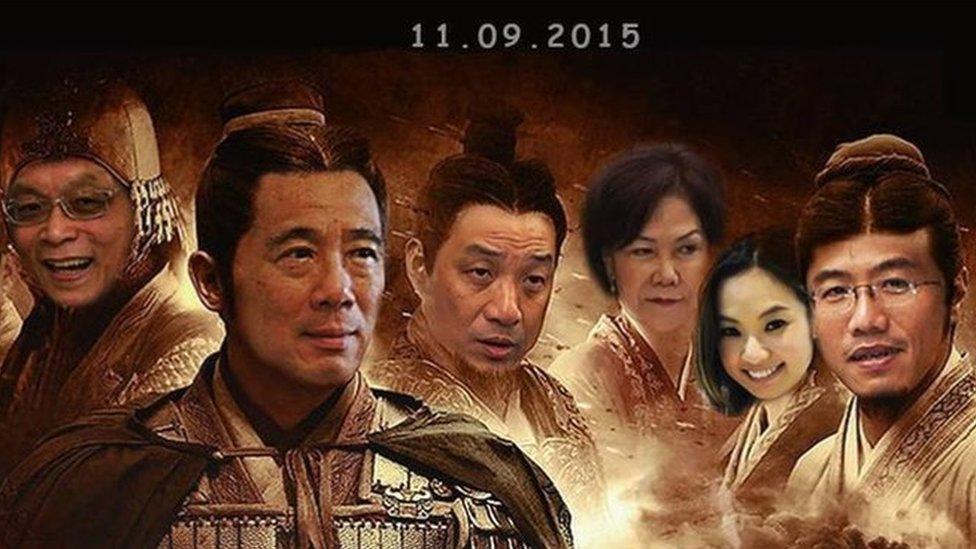
- Published28 March 2015
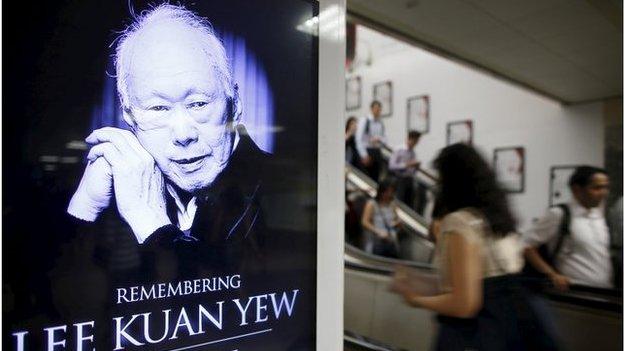
- Published4 September 2023
